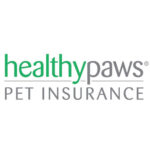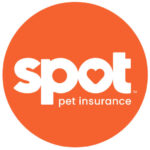Best Pet Insurance For German Shepherds In 2026
In my expert viewpoint, Healthy Paws emerges as the best choice for pet insurance tailored to German Shepherds.
We’ve saved shoppers an average of $350 per year on their pet insurance.
If you happen to have a German Shepherd , your primary concern naturally centers around its overall health and welfare. Given its purebred nature, German Shepherds have a higher susceptibility to hereditary health concerns compared to their mixed-breed counterparts. Regrettably, a substantial 80% of pet owners are ill-prepared to handle an unforeseen veterinary expense of $500 from their savings. This is where pet insurance steps in, acting as a financial safeguard.
In this assessment, we will delve into the leading pet insurance providers for German Shepherds, helping you discern the policy that aligns best with your specific requirements. Pet insurance functions quite similarly to personal health coverage, affording enhanced treatment choices while placing a cap on potential out-of-pocket expenditures. Unlike private health insurance, however, the cost remains affordable and reasonable.
Best Pet Insurance Companies For German Shepherds 2026
Different pet insurance companies for German Shepherds are alike in many ways as they ensure your pet is taken care of and limit your financial risk. But they also have differences. So, what works for your neighbor’s pet might not be the best for yours.
Let's break down the finest pet insurance companies for German Shepherds:



Comparison Of The Best Pet Insurance Companies For German Shepherds
From our analysis of the finest pet insurance providers for German Shepherds outlined earlier, it's evident that numerous reputable companies are competing for the leading positions. You can also observe that each company possesses its unique advantages. Here's a quick overview to provide you with a glimpse into each insurer:
| Overall Rating | Benefit Limit | Waiting Period | Reimbursement % | Best For | Get A Quote | |
|---|---|---|---|---|---|---|
| Lemonade |
|
$5,000 to $100,000 annually |
2 days accidents, 14 illness |
70%,80%,90% |
Cheap |
Instant Quote |
| ManyPets |
|
Unlimited annual and lifetime |
15 days accident/illness |
70% or 80% (most states) |
Puppies |
Instant Quote |
| Pumpkin |
|
$10,000, $20,000, or unlimited |
14 days accidents/illness |
90% |
Older Dogs |
Instant Quote |
| Healthy Paws |
|
Unlimited annual and lifetime |
15 days accident/illness |
70%,80%,90% |
Overall |
Instant Quote |
| Spot |
|
$2,500 to unlimited |
14 days accident/illness |
70%,80%,90% |
Multiple Pets |
Instant Quote |
Our Methodology
The assessments and resulting ratings were formulated by examining the websites of each insurer, analyzing customer reviews, consulting other review platforms, and drawing from personal experiences of having previously bought and utilized pet insurance.
Years Of Experience
Brands Reviewed
Years Of Experience
Brands Reviewed
Detailed Reviews Of The Best German Shepherd Insurance Companies
Best Overall
Key Statistics
Why We Like Them
⇅Healthy Paws stands out as the best choice for pet insurance due to its absence of claim payout ceilings, per-incident maximums, or restrictions. While it might require a higher investment, this choice proves its value by eliminating the need to make tough decisions based on policy constraints.
Healthy Paws presents a straightforward policy, devoid of expensive extras, and extends the flexibility to consult any licensed veterinarian.
The process of filing claims is made effortless via their mobile app or website, with most claims being resolved within a mere two days.
Benefits & Drawbacks
⇅- Unlimited annual and lifetime payouts
- Fast processing of most claims within 48 hours
- 30-day money-back guarantee
- Potential for direct vet payments ✓
- Absence of routine wellness coverage option ✘
Runner-Up for Best Overall
Key Statistics
Why We Like Them
⇅Lemonade emerges as the most budget-friendly pet insurance option for German Shepherds. While its coverage boundaries are comparable to those of other reviewed companies, they differ from the limitless coverage offered by Healthy Paws.
Lemonade’s coverage spans from $5,000 to $100,000 per annum, with the premium rising in tandem with the chosen limit.
The standard policy provided by Lemonade encompasses accidents and ailments, spanning from cancer and heart disease to skin issues, fractures, and the prevalent concern of hip dysplasia in older German Shepherds.
Comparable to the norm among insurers, Lemonade doesn’t provide coverage for preexisting conditions, dental problems, behavioral matters, or elective procedures.
Benefits & Drawbacks
⇅- An optional wellness plan is at your disposal.
- Experience an accident waiting coverage period of just two days.
- Receive a 10% discount when you combine pet insurance with your existing Lemonade home, renters, or car insurance. ✓
- A 24/7 pet telehealth line is not provided.
- The inclusion of coverage for vet exam fees incurs an additional charge.
- Regrettably, prescription food and microchipping are not covered by the policy. ✘
Best for Older Dogs
Key Statistics
Why We Like Them
⇅As German Shepherds get older, they can develop genetic health issues like cruciate ligament problems and hip dysplasia that need expensive treatments. Pumpkin doesn’t make you wait for these conditions and covers vet exam fees for your older German Shepherd.
Pumpkin offers different coverage choices for various problems that German Shepherds might face, including surgeries and dental issues. You can choose from three deductibles, and they usually reimburse 90%.
Benefits & Drawbacks
⇅- You have the choice to enroll in an optional wellness plan.
- Benefit from discounts when you insure multiple pets.
- Enjoy a substantial 90% reimbursement for dogs and cats aged 8 weeks and older. ✓
- A 24/7 pet telehealth line is not part of the offering.
- Regrettably, an accident-only plan is not made available. ✘
Best for Puppies
Key Statistics
Why We Like Them
⇅ManyPets offers the best coverage for puppies. Rates remain unaffected by pre-existing conditions, and healed ailments might become eligible for coverage after an 18-month period. Moreover, unrelated conditions can still qualify for coverage.
Similar to all young dogs, German Shepherds in their puppy stage are susceptible to various illnesses such as poisoning, ingestion of foreign objects, and accidents arising from their exuberant energy.
Ensuring coverage during their early stages significantly reduces the likelihood of encountering exclusions related to pre-existing conditions as they mature.
Benefits & Drawbacks
⇅- Accessible in over 40 states.
- Inclusive of vet exam fees for both illness and accident-related visits.
- Provides the choice of optional wellness plans. ✓
- Lacks a 24/7 pet telehealth line.
- Excludes coverage for pet behavioral therapy.
- Unfortunately, alternative therapies are not within the coverage. ✘
Best for Multiple Pets
Key Statistics
Why We Like Them
⇅Many folks who own German Shepherds often have multiple pets due to the Shepherds’ friendly nature. Spot acknowledges this and offers a 10% discount if you insure more than one pet with them, resulting in substantial savings.
Spot’s extra preventive care plan covers wellness needs, including an annual vet visit, a fecal test, and teeth cleaning. Some vaccinations are also part of the coverage.
Furthermore, Spot assures a 30-day money-back guarantee if the coverage or service doesn’t meet your expectations. They also provide up to 90% reimbursement on eligible vet bills and a 24/7 vet helpline. You’re free to consult any U.S.-licensed vet or specialist
Benefits & Drawbacks
⇅- Encompasses microchipping services.
- Offers the option of a modest $100 deductible
- Features a readily accessible 24/7 pet telehealth line. ✓
- Accidents are subject to a 14-day waiting period, in contrast to the 2-day waiting period observed in certain leading competitors. ✘
Average cost of pet insurance for German Shepherds
| Company | Annual Reimbursement % | Monthly Price | Deductible | Age of Dog |
| Healthy Paws | 70% | $75 | $500 | 5 year old |
| Lemonade | 70% | $49 | $500 | 5 year old |
| Healthy Paws | 80% | $30 | $500 | 1 year old |
| Spot | 70% | $77 | $500 | 5 year old |
| Lemonade | 80% | $27 | $500 | 1 year old |
| Lemonade | 70% | $21 | $500 | 3 month old |
| Healthy Paws | 70% | $32 | $500 | 3 month old |
| Spot | 80% | $57 | $500 | 1 year old |
| Spot | 70% | $88 | $500 | 3 month old |
Average cost of typical vet procedures
| Typical Vet Procedure | Average Cost Of Procedure |
| Annual exam | $240-600 |
| Teeth cleaning | $200-500 |
| Heartworm prevention | $24-120 |
| Spay or neuter surgery | $200-800 |
| Puppy vaccinations | $75-100 |
| Flea & tick prevention | $40-200 |
| Microchip | $40 |
Average cost of emergency vet procedures
| Emergency Pet Procedure | Average Cost Of Procedure |
| General consultation/exam | $100-$150 |
| Emergency surgery | $800-$2,500 |
| Oxygen therapy | $500 |
| Wound treatment & repair | $800-$1,500 |
| 1-2 day hospitalization | $600-$1,700 |
| 3-5 day hospitalization | $1,500-$3,500 |
| Ultrasound | $300-$600 |
| General bloodwork | $80-200 |
| X-rays | $150-$250 |
Common health issues for German Shepherds
Breed-specific health concerns are common among purebred dogs like German Shepherds. Over time, certain breeders have overlooked genetic considerations in their German Shepherds breeding practices, leading to issues that affect the overall German Shepherd community. Compared to other breeds, German Shepherds are generally more susceptible to genetic health problems.
Outlined below are some prevalent health problems often found in German Shepherds:
- Hip and Elbow Dysplasia
- Degenerative Myelopathy
- Exocrine Pancreatic Insufficiency (EPI)
- Gastric Dilation Volvulus (GDV)
- Panosteitis
- Degenerative Joint Disease (DJD)
Is pet insurance worth it for German Shepherds?
Pet insurance acts as a shield against unforeseen vet expenses. While many pet parents foot their pet’s medical bills, the majority of Americans can’t manage a $1500 emergency vet charge. The right pet insurance is akin to a lifeline. It empowers you to make medical choices for your furry family member driven by their well-being, not financial constraints.
The value of pet insurance hinges on your expectations. If your pet is presently under treatment for a chronic ailment and you’re seeking aid with treatment costs, you might face disappointment since no company in our evaluation covers preexisting conditions.
However, if you comprehend your policy, its coverage scope, and align it with your budget and requirements, you’re more likely to view the policy as worthwhile.
How to find the best pet insurance company for you
The expenses and options of pet insurance plans offered in the market differ by company, which can make selecting the right one a bit tricky. To identify the optimal plan for your pet, ponder over these pointers before you decide on coverage:
Check whether your pet is eligible
For puppies and kittens, getting insured typically requires them to be at least 6 to 10 weeks old, depending on the company. Certain companies might not allow first-time enrollment for senior pets, or they might limit them to accident coverage. However, once your pet is enrolled, most plans ensure lifelong coverage as long as you keep up with the premium payments.
Research what’s covered
Pet insurance plans usually take care of expenses like surgery, hospital stays, and medications in case your pet falls ill or gets injured. Nevertheless, there are specific aspects that some companies may charge extra for or not cover at all. Here are a few examples:
- Exam fees: Imagine your dog breaks a leg. While some plans might reimburse costs for X-rays, surgery, and pain meds, they might not cover the vet’s examination fee.
- Alternative treatments and rehab: A number of companies include coverage for things like acupuncture and physical therapy in their regular plans, while others may require an additional charge.
- Behavioral therapies: Not all policies extend to veterinary treatment for behavioral problems like aggression.
- Prescription food: Certain plans exclude food or supplements, even if prescribed by your vet for a covered condition.
- Dental care: Pet insurance plans differ when it comes to oral health. Some might not cover dental issues such as gingivitis or periodontal disease. Alternatively, coverage might be tied to recent tooth cleaning. Some wellness add-ons might cover cleanings.
Keep in mind that pre-existing conditions, cosmetic procedures, and breeding expenses are typically not covered by pet insurance policies.
Decide how much coverage you want
The majority of pet insurance plans set a yearly maximum payout, although a few have no annual cap. It’s up to you to determine the sum that offers you a comfortable sense of security when it comes to handling vet bills.
If your dog or cat enjoys good health, you might breeze through years without needing to cover anything beyond regular care. However, unforeseen surgeries or severe illnesses could result in accumulating expenses reaching thousands of dollars.
Understand reimbursements and deductibles
The majority of pet insurance plans provide reimbursement for a percentage of your veterinary bill. Typically, you can pick a reimbursement level when purchasing the plan, such as 70%, 80%, or 90%.
In contrast, other plans follow the insurance company’s set fee for a specific treatment, which might be less than your vet’s charges. You would be responsible for covering the difference.
Most plans also involve a deductible— the amount you personally pay upfront before the policy contributes. You usually have the choice of various deductibles, like $100, $250, or more. Some plans apply deductibles to each treated injury or illness, while most require you to pay the deductible annually.
Generally, the lower your personal costs are, the higher your coverage expenses become. Opting for a lower deductible and a higher reimbursement rate could result in a pricier premium. On the other hand, selecting a higher deductible and a lower reimbursement rate might lead to a more affordable premium.
Check waiting periods
The majority of plans feature brief waiting periods after policy acquisition for overall accident and illness coverage, often around 14 days. During this waiting period, the plan won’t cover any treatments.
For specific conditions like cruciate ligament injuries, certain plans have extended waiting periods. These ligaments play a role in stabilizing the knee, and injuries to them can hinder a dog’s mobility.
Examine extra costs
Certain pet insurance companies provide coverage for routine services like wellness check-ups and vaccinations. While this might be appealing, it’s important to calculate if the additional expense is truly beneficial. Weigh the yearly cost of the wellness insurance plan against the sum you would personally spend each year for the services the plan includes. Be thorough in reviewing the specifics, as the components categorized as “wellness” can differ among pet insurance providers.
Compare Quotes
Insurance expenses differ based on the provider and the level of coverage. Certain pet insurance companies extend discounts; you could potentially economize by insuring multiple pets. Nonetheless, a discount alone doesn’t ensure that a plan is the optimal choice.
The sole method to locate the most suitable insurance for your pet involves delving into the specifics and collecting quotes for various plans. Ensure you’re making an impartial comparison, considering similar coverage levels, deductibles, and reimbursement limits.
Factors that impact cost of your pet insurance policy
Much like your health insurance, the cost of your pet insurance can vary due to specific factors, such as:
- Location: Pet insurance companies factor in the local vet care expenses when determining your policy’s price.
- Pet’s Age: Older animals are more prone to health issues, so their premiums are usually higher.
- Pet’s Breed: Some breeds have a higher susceptibility to health problems. For instance, bulldogs and Boston terriers often experience breathing difficulties, while larger breeds like German Shepherds have a higher likelihood of hip dysplasia. These potential concerns can impact the cost of your pet insurance plan.
- Deductibles, Coinsurance, and Coverage Limits: The less you’re willing to personally pay for your pet’s care, the higher your insurance premium becomes. For example, selecting a $100 deductible instead of a $500 one leads to earlier reimbursements for your pet’s care, but at the expense of higher premiums.
Information about German Shepherds
Renowned for their intelligence and versatile nature, German Shepherds are cherished as one of the most popular and capable dog breeds. Originating in Germany, they initially served as herding and working dogs due to their sharp intellect and strong work ethic. Boasting a striking double coat, German Shepherds come in various color patterns, with the classic tan and black combination being iconic.
Dynamic and sociable, German Shepherds thrive in active households and relish outdoor pursuits. Their keen sense of smell and natural aptitude for various tasks make them exceptional service and police dogs. Forming deep bonds with their owners, German Shepherds exhibit both loyalty and affection. Renowned for their confident demeanor and adaptability, German Shepherds continue to be admired for their remarkable qualities around the globe.
Looking For Pet Insurance For Other Dog Breeds?
FAQs
Is pet insurance cheaper for purebred dogs?
Given that purebred dogs are often more inclined to genetic vulnerabilities leading to expensive ailments and conditions, insuring them is typically more costly compared to mixed-breed dogs.
What is the average cost of owning a German Shepherd?
Initial expenses in the first year tally up to approximately $3,000, covering vaccinations, food, grooming, and insurance. However, the subsequent yearly costs decrease to around $1,900.
What insurance do you need for a dog?
It’s advisable for dog owners to possess a certain degree of pet insurance. This ensures that they can manage veterinary expenses, maintaining their dog’s health and well-being.
Sources
⇅